Vietnamese National Assembly members to tackle dog and cat meat trade
The event, bringing together nearly 50 parliamentarians, government officials, and specialists, highlights the value of the National Assembly uniting various stakeholders in Vietnamese society to tackle the issue as a serious problem and build momentum towards responsible pet guardianship.
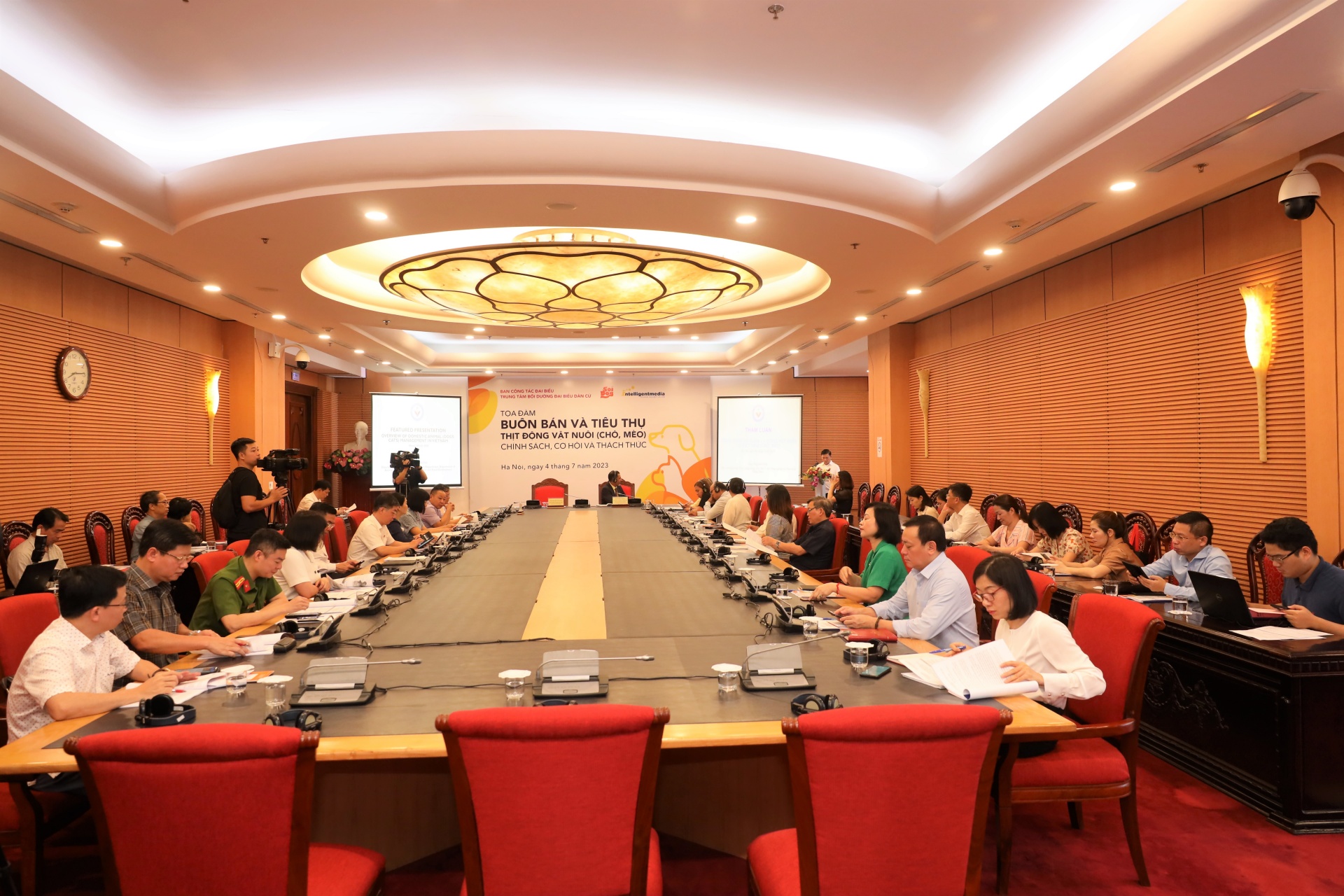 |
| Discussions encouraged a more comprehensive understanding of the existing situation of the dog and cat meat trade in Vietnam |
Nguyen Tuan Anh, vice chairman of the Board of the Deputy Affairs under the Standing Committee of the National Assembly said: “Dog and cat meat trade and consumption are increasingly burning issues. Vietnam has a legal framework on the issue, but enforcement is the major loophole."
"In addition, targeted communication campaigns should be amplified so that involved actors realise that strengthening welfare standards not only improves the lives of animals, but can also educate the public about the zoonotic disease risks that they might face. I support innovative and impactful initiatives to reduce and stop the trade and consumption of dog and cat meat in Vietnam,” he said.
One prominent conversation revolved around strategy and roadmap to develop Hanoi as a dog and cat meat-free city.
Ta Van Tuong, deputy director of Hanoi Department of Agriculture said, “Phasing out dog and cat meat is key to attracting more tourists who are increasingly caring for environmental tourism services and animal welfare conditions."
"Local authorities should work hard to increase education, public awareness, control of unleashed dogs and enhance animal welfare regulations, and settle violations. It contributes to make the image of the modern and civilised city,” he added.
The Soi Dog Foundation International led a discussion around evidence-based research on the link between animal-directed violence and its adverse impacts on human beings.
The survey depicts how workers in the trade are motivated and what consequences they might suffer from, such as emotional distress, anxiety, depression, and other symptoms akin to post-traumatic stress disorder.
Physical injuries and infectious diseases are not yet mentioned. International experiences, and lessons learned on how a dog meat ban in Thailand and the Philippines worked and what steps that Vietnam should take, were also featured.
Director of Intenational Advocacy of the Soi Dog Foundation International Rahul Sehgal said, “The ultimate goal is a ban, initially at the provincial level like with Hanoi, on the trade-in, and slaughtering of dogs and cats, and their consumption. The partnership with the National Assembly has marked a critical milestone in raising the profile of the issue to the top of government so that laws and regulations to control the dog and cat meat trade will be further improved and enforced."
Dog and cat meat consumption is a long-time-rooted local culture. Public education and awareness raising should be at the forefront of tackling the issue. Eventually, an evidenced-based, comprehensive, and targeted social and behavioural change initiative should be employed to initiate and sustain a change of practice, the roundtable heard.
Duyen Bui, social and behaviour change director of Intelligentmedia said, “Apart from legislation improvement and increased enforcement, behavioural science should be utilised to alter habits, especially of high-frequency dog and cat meat consumers."
"It necessitates in-depth understanding and proper segmenting of the user groups, the creation of barriers and restrictions, and education on alternatives. Interventions not only involve the target audiences but also their closed network and the whole community so that public scrutiny and the social norm against consumption will be kicked off and maintained. Ultimately, it will put the practice to an end,” she said.
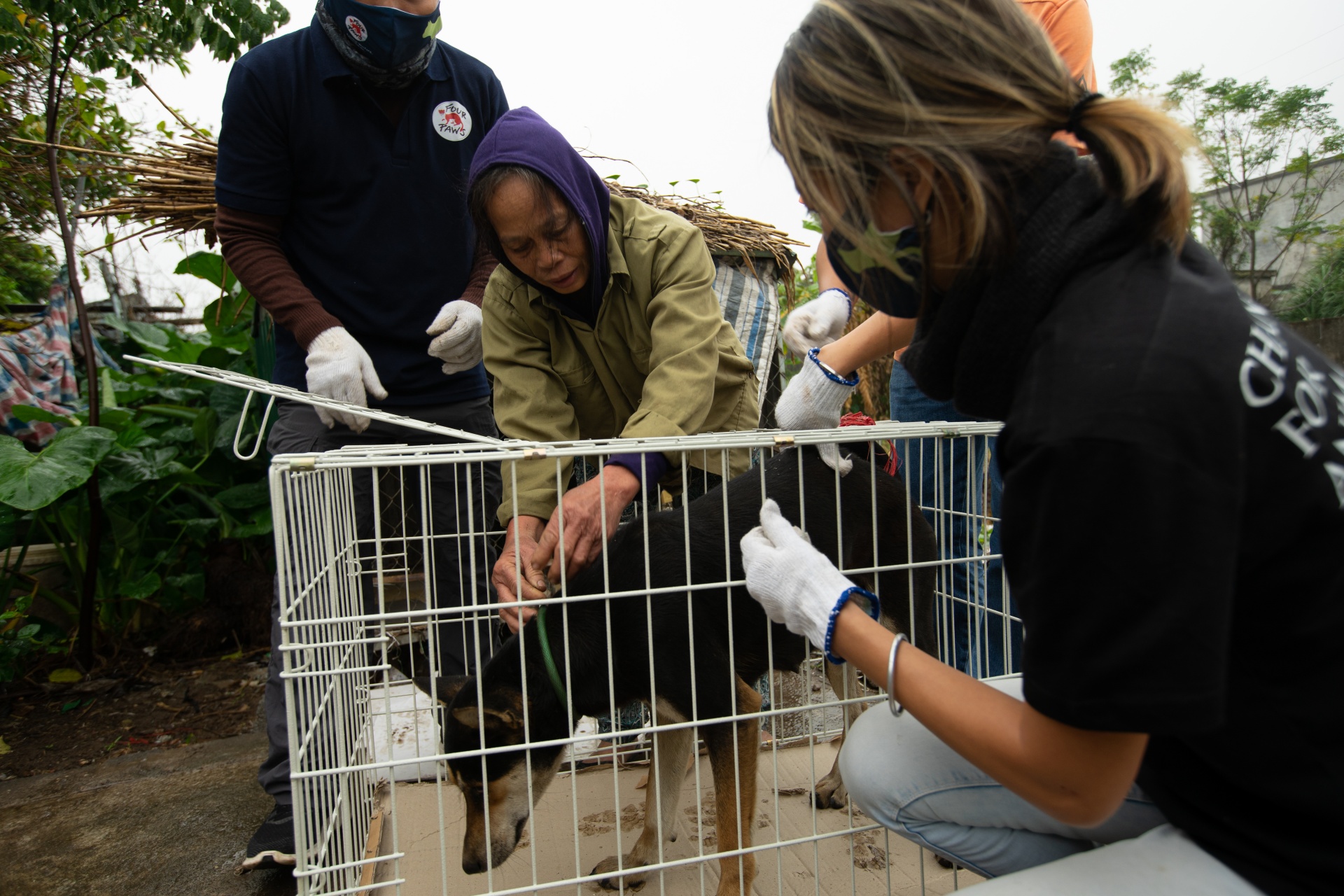 |
The event ended on a strong consensus from parliamentarians and leaders from the Ministry of Agriculture and Rural Development, the Ministry of Health, Hanoi Public Security, the Ministry of Trade and Industry, and the Ministry of Culture, Sport, and Tourism that stopping dog and cat trade and their meat consumption was necessary for the sake of animal welfare compliance, and public health and safety.
The event is an integral effort of the Soi Dog Foundation International to put an end to the cruelty and negative consequences of the dog and cat trade as well as their consumption in Vietnam.
The World Health Organization warns that the trade, slaughter, and consumption of dogs pose public health risks from trichinellosis and cholera and particularly the deadly rabies virus.
What the stars mean:
★ Poor ★ ★ Promising ★★★ Good ★★★★ Very good ★★★★★ Exceptional
Related Contents
Latest News
More News
- Opening remarks of 14th National Party Congress (January 20, 2026 | 09:44)
- Vietnamese youth support 14th Party Congress with nationwide flag raising (January 20, 2026 | 09:37)
- Deputy Foreign Minister meets int’l journalists covering 14th National Party Congress (January 20, 2026 | 09:19)
- 14th National Party Congress convenes preparatory session in Hanoi (January 20, 2026 | 09:12)
- 14th National Party Congress opens preparatory session in Hanoi (January 19, 2026 | 17:42)
- National Convention Centre ready for 14th Party Congress (January 19, 2026 | 12:05)
- Key highlights of 14th National Party Congress (January 19, 2026 | 09:00)
- First working day of 14th National Congress of Communist Party of Vietnam (January 19, 2026 | 08:54)
- 14th National Party Congress – significant moment for Vietnamese people, international friends (January 18, 2026 | 18:00)
- 14th National Party Congress expected to shape Vietnam’s path to 2045 (January 17, 2026 | 16:00)


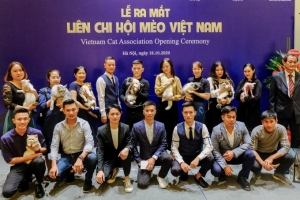
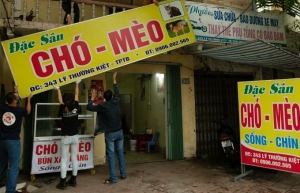
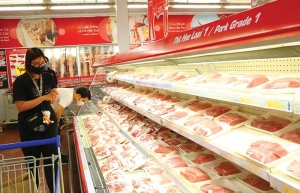
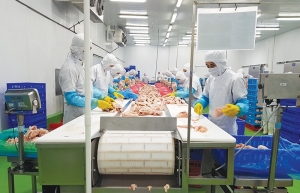
 Tag:
Tag:





















 Mobile Version
Mobile Version